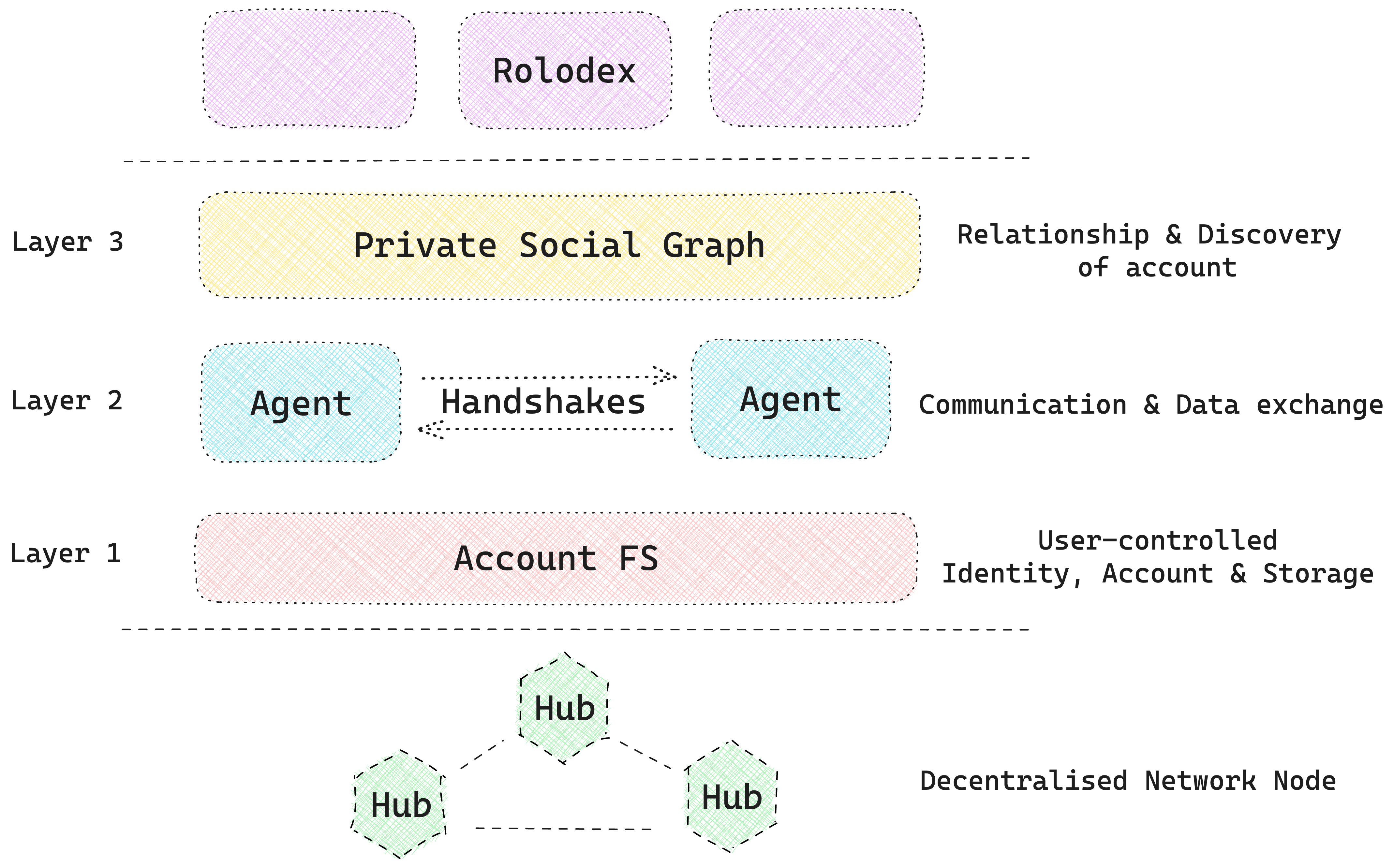Overview
Creole Network is a peer-to-peer network enabling user-controlled relationships on the internet. Users form relationships with others when they “sign up” on an app, “join” a community or “connect” with someone on social apps.
Rolodex is the native contact app of Creole Network. All the relationships created across the apps on the network show up in a user’s rolodex.
On Creole Network every participant gets an Account whose actions are executed through their Agents. Creole Network can be visualized as three conceptual layers
- Private Social Graph is the relationship and search layer. A relationship is created via handshakes between two Accounts via their Agents & stored as a graph with the user in the center. Users get to search through people and the profiles shared with them.
- Handshakes is a p2p data exchange and communication protocol between Accounts. A handshake establishes a relationship resulting in the mutual exchange of profiles between two accounts & giving permission to access data.
- Account-fs is the user-controlled, private data storage & sync layer for storing contacts and relationships.
